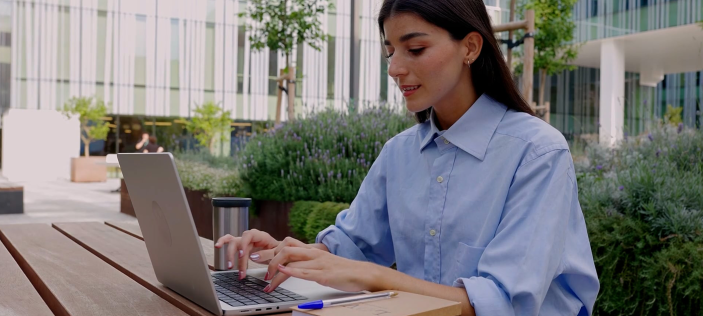
With next week being National Careers Week, what better time than now to look at the opportunities available as a Learning Support Assistant or Teaching Assistant in Hertfordshire and why a career path like this could change your life.
Whether you are kickstarting your career, fancy a career change or are looking for avenues to allow you to be more flexible around “life”; we want to introduce you to the ‘whys’ of a classroom support career (and the ‘how’s’) in our stunning county of Hertfordshire.
Welcome to Hertfordshire
Hertfordshire is one of the most highly performing education authorities in England. Schools consistently achieve standards well above national averages. The county is committed to providing high-quality education and support for all children in every school and setting from early years, through to further education.
With our county a multicultural hub expanding every year outside of London, it is important we celebrate this and champion equality, diversity and inclusion in our county and our schools to ensure the best opportunities for future generations. Herts schools are actively seeking to diversify their workforce to ensure representation for pupils and their families as well as to encourage a diverse dynamic. Not only is this being championed in our schools, but it is also endorsed by the likes of Hertfordshire County Council, HFL and the University of Hertfordshire, helping to ensure the working environment for people of all backgrounds is supportive and inspiring.
In our opinion there is no better place to be a Learning Support Assistant or Teaching Assistant than Hertfordshire. The county is rightly recognised as one of the leading education authorities in the country. With a network of over 700 schools and settings, including early years settings, nursery schools, primary, secondary and middle schools, special schools, academies, maintained schools, free schools and independent schools- the opportunities are endless. With best practice and high standards shared across settings, you could be a part of something quite simply great. Don’t just take our word for it, you can browse our schools to see them showcase their excellence for themselves!

The 'whys'
Most Teaching Assistant (TA) jobs are in nursery, primary and special schools, although you could also work in secondary or independent schools and academies. A TA is usually deployed to work across a whole class, but may sometimes support smaller groups and individual children.
Learning Support Assistants (LSA), can work in primary, secondary or special schools, and usually work with individual children who find it difficult to learn due to a disability or health issue, because English isn’t their first language, or perhaps because of family or other specific circumstances. LSAs mostly work with students on a one-to-one basis, although may sometimes work with groups or support the whole class. You could work as a LSA in a special school that supports children with special needs or with an individual student or small group of students in a mainstream school.
Depending on the age and the individual needs of the students, your responsibilities could include:
- getting the classroom ready for lessons and clearing away afterwards
- listening to children read or reading to them
- helping children who need extra support
- helping teachers prepare materials that match development needs
- supervising group activities, including outings and sports events
- helping teachers manage class behaviour
- looking after children who are upset or unwell
- leading classes with help from the teacher
- Promote the safety and wellbeing of pupils
- Maintain good order and discipline among pupils, managing behaviour effectively to ensure a good and safe learning environment
- Comforting students when they are upset
- Help children understand instructions
- Carry out a student's care plan
- Support children during social activities and outings
- Look after children's physical needs
You can help pupils succeed and achieve
With classrooms being such busy and productive places, class teachers need a helping hand to ensure lessons are delivered to a high standard and that all children’s needs are met. Tas and LSAs help to ensure every pupil is supported, both academically and in terms of their wellbeing, and to support the class teacher too. You may be working one on one or with groups of children, and will be fully trained and briefed to support children in whatever way they need. The impact this has on both pupils and the class teacher is enormous, and as a result this is a job that can be extremely rewarding, challenging and fulfilling.
Be someone they remember
We all remember people from our days at school and most of us will have those friendly faces we think back on for years to come and how they influenced and helped us through the school day. Because Tas and LSAs often are working very closely one on one with pupils, getting to know them and building a trustful relationship, they are a familiar and friendly face. The impact this may have on a pupil is huge and for that pupil, a motivator for years to come which can be lifechanging for them as they embark on life after education.

Work/Life balance
It isn’t all about how you can help others, it is also about how the role can really help you. The nature of the role provides flexible working hours, often in line with school hours. Whether you pick your children up from school, you need to walk the dog, you have a yoga class or just really appreciate some time to yourself to enjoy things you love doing, the flexible work routine allows that. The balance between both work and life keeps the passion and motivation present and we know a fair few TAs who will vouch for that.
A steppingstone for career progression
With experience, you could become a senior assistant or apply for a Higher Level Teaching Assistant (HLTA) role.
You could also choose to train as a teacher. Although many people enjoy a long and rewarding career in classroom support, this can also be one step in the right direction if you are considering whether to become a teacher. You will gain first-hand experience in the classroom, learning and developing skills while observing experienced, qualified teachers day to day. You will gain experience working with children, as well as develop knowledge of curriculum delivery. This will bring you bundles of confidence in the classroom environment. There are training routes available that will allow you to continue working at your school as a TA while you train to teach. Progression from the role does not end here, the transferable skills gained will open up opportunities for a multitude of roles in education, both in and out of the classroom.
A first-hand account
As much as we hope you will trust what we have said about the whys, we wanted you to hear it first hand too. We interviewed Ekhnaam, a Teaching Assistant at one of our local schools to get a glimpse of what the job is really like.
Coming straight from her A levels last year, Ekhnaam plans to go on to university in the future but wanted to gain some real life work experience first. Ekhnaam ran into her old Headteacher while considering her options and after speaking to her about various opportunities within the school she had once attended, she applied and now works as a TA, with children in years 6 to 10.
Although she has no formal childcare or teaching qualification, Ekhnaam received extensive on the job training and learnt first-hand from shadowing and observing experienced TAs in the classroom. This has enabled her to be successful in this role and become a key role model and support to her pupils.
She highlights that “the relationships made with the children” are a really important aspect of her role, and explains that working one on one with individual children allows them to build trust and demonstrates how TAs are constantly making a difference. One child said to her “TAs are like butterflies, I love speaking to them”. Working across the board with all different age groups is one of the things she enjoys most about her role. She says, “I get to work with different people and children every day… every day is different”. She reflects on this point a lot in our interview and highlights it as one of the many reasons she “genuinely loves this job”.
We asked Ekhnaam what advice she would give to someone who was looking to apply and what are the key things schools are looking for. Due to no day being the same and working with a wide range of people, she says you need to be both “patient” and “adaptable”. She also wants to highlight that “anyone can do this job”. Don’t be put off if you think your interests don’t align, across all the lessons you will get involved with so many different activities and tasks. Whether you love maths or science, reading or art you will “enjoy every second of it”. And most importantly “be yourself”. Behind every TA is someone who these children and staff want to get to know and build these relationships with. Everyone starts somewhere in this career and by starting with being you, you set yourself up for a career you will find rewarding, exciting, motivating and one you will “genuinely love”.

The 'how’s'
By now we hope that you have a real taste as to why a career as a Teaching Assistant or Learning Support Assistant in Hertfordshire is not one to sleep on, and are asking yourself what’s next and how do I get there?
Specialist qualifications are available, and qualifications in childcare, safeguarding, first aid and equality and diversity will help you standout when candidates are being shortlisted for interviews.
However, you don’t always need these to apply as you will receive lots of on the job training.
It’s more important you have;
- Patience
- Empathy
- Initiative
- Resilience
- a great sense of humour
- the ability to build good relationships with children, teachers and parents
- good organisational, planning and IT skills
You will generally need to have GCSEs at grades 9 to 4 (A* to C), or equivalent, in English and maths, and some experience of working with children, especially those with special educational needs would be an advantage.
For your next step, look no further than the Teach in Herts website, which is full of opportunities with schools and settings across Hertfordshire.
You can register to create bespoke job alerts, read testimonials from school staff (including Ekhnaam), and access information and guidance about school careers and training opportunities.


